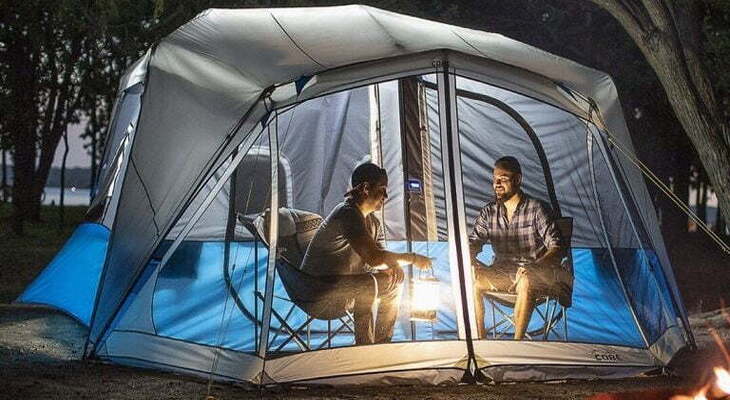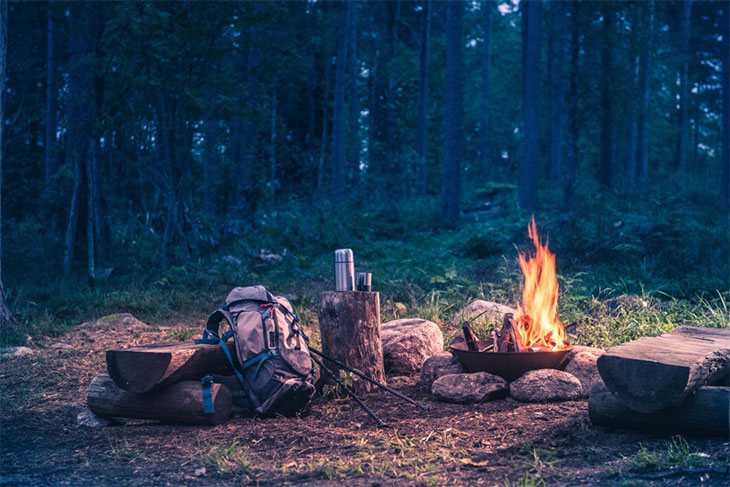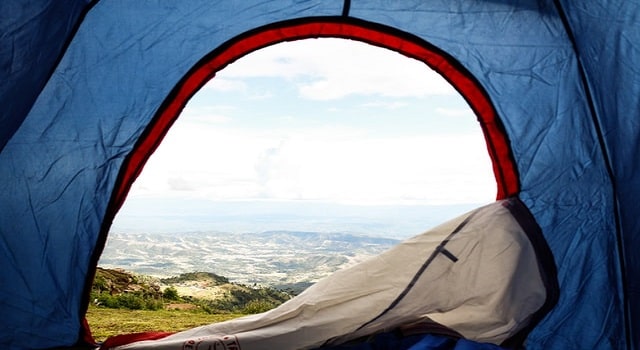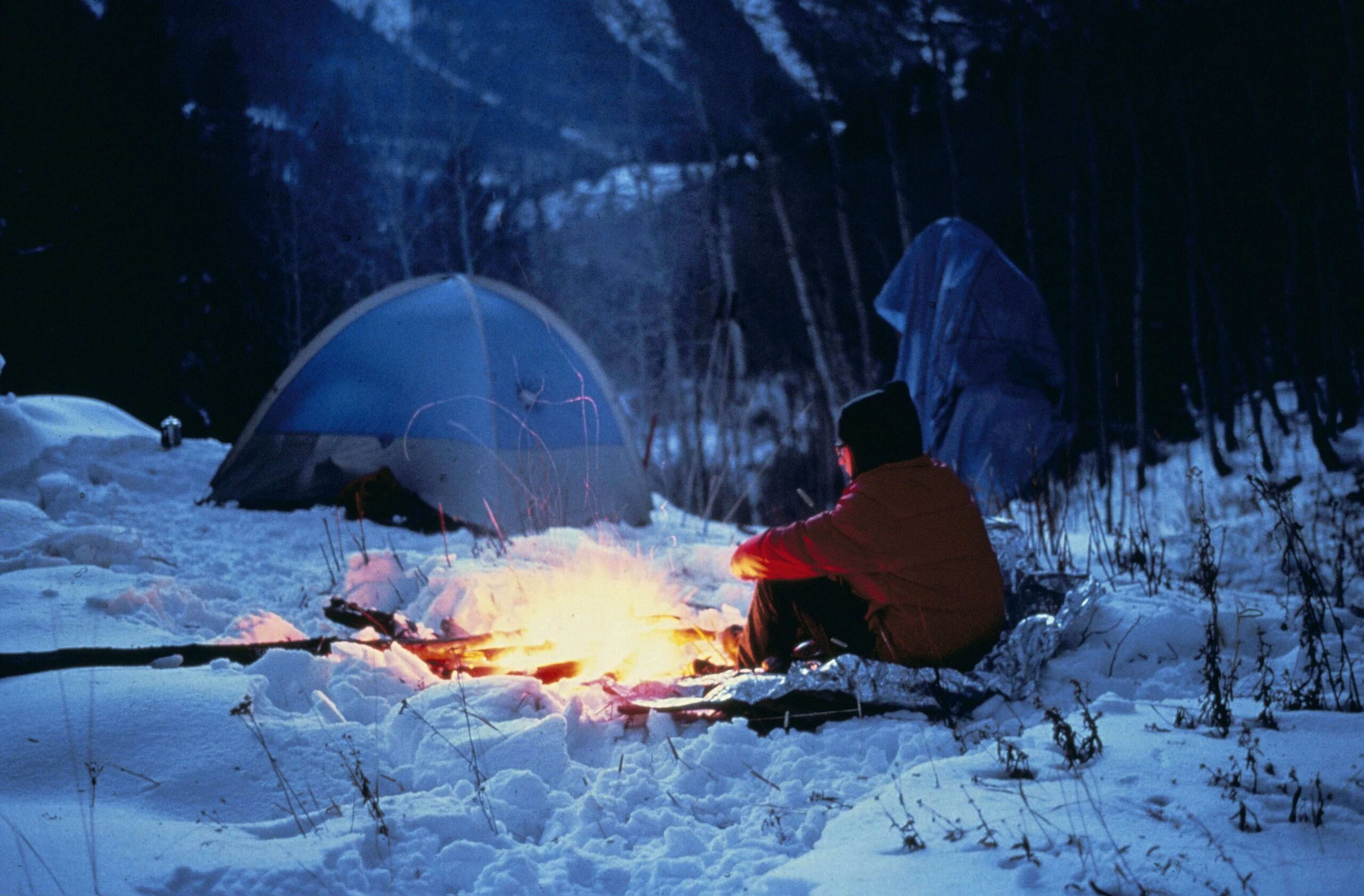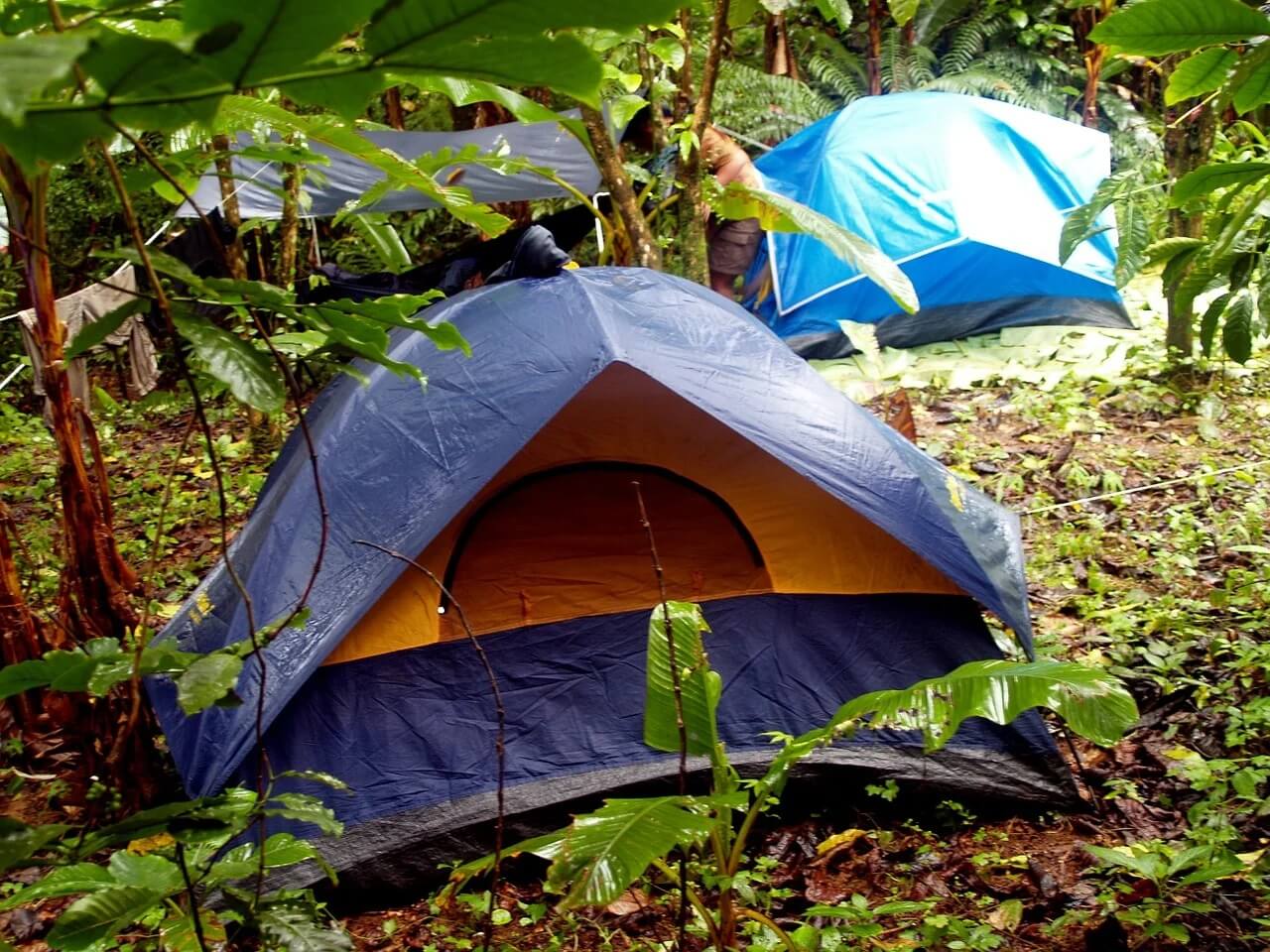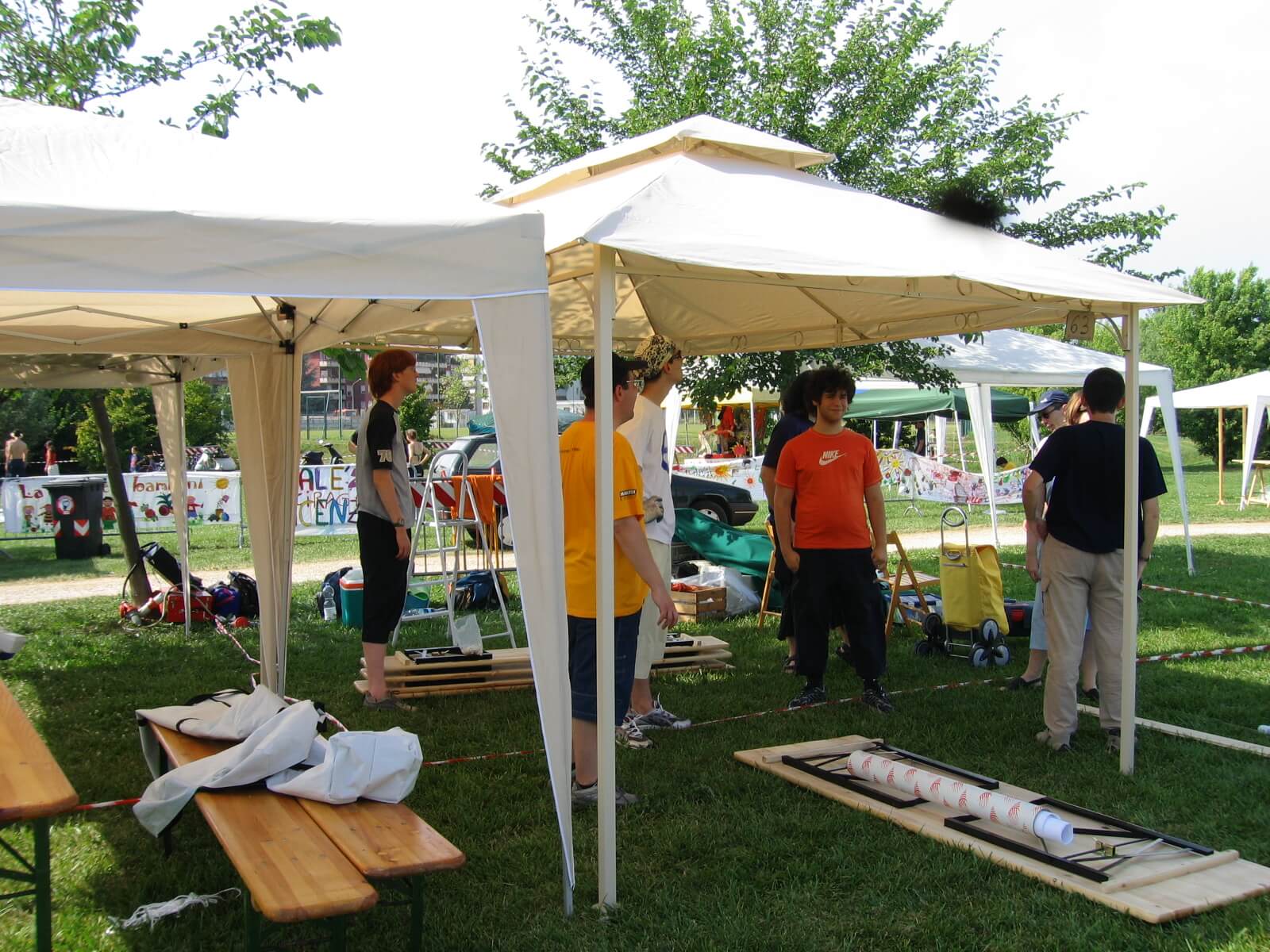
Whenever you start backpacking, the first thing that should come to mind is how much backpacking gear weight you’re going to bring along. Not only should it be light, but your backpacking tent needs to be able to withstand different weather conditions as well as hold up for a few seasons.
Prepping for backpacking trips can be sort of daunting because of all the things you need to consider, from what backpacks and backpacking tents are best suited for your trip, figuring out where exactly you will go and what your itinerary entails, actually going backpacking, then deciding on a pack list that makes sense.
It’s not easy thinking about this sort of stuff before going on a camping adventure.
There are definitely other considerations too, but backpacking tents are one of the first things you should think about.
So the question that’s probably on your backpacking/camping mind right now is, “How much should a backpacking tent weigh be something have for backpacking?
So what should backpacking tent weight be? A backpacking tent that weighs less than four pounds is considered to be lightweight and can usually fit two people. Some backpacking tents weigh as little as two pounds, which isn’t very much weight at all!
You can choose from different backpacking tent styles such as tarp backpacks for ultralight backpacking, notch backpacks, pyramid camping tents, or even geodesic dome camping tents.
You know your backpacking trip needs a backpacking tent and you also need to know how much it’s going to weigh so you don’t bring too many heavy items with you.
Contents
Tents for backpacking compared

When looking for a backpacking tent, you’ll want to compare the weights and features of different backpacking tents before making your purchase.
Some backpacking tents are designed for three-season use while others are made for harsher weather conditions. Make sure to consider the climate you’ll be backpacking in and what type of weather the backpacking tent is best suited for.
You may want to think about backpacking during certain seasons such as backpacking in the spring, summer, fall or winter. It will depend on where you’re backpacking and what time of year it is during that particular backpacking trip.
Backpacking tents are also made with different styles including backpacking in mind. There are backpacking tents that are designed to be lightweight and easy to carry with you on your backpacking trip.
There are also backpacking tents that are designed for car camping. These backpacking tents are usually a bit heavier than lightweight backpacking tents, but they offer more features and space.
The types of tents are as follows:

Backpacking tents: ultralight backpacking, notch backpacks, pyramid camping tents, and geodesic dome backpacking tents
Car camping tents: usually heavier than backpacking tents, but offer more features and space
Factors to consider when determining backpacking tent weight
There are a few factors you’ll want to consider when backpacking, backpacking tent camping, and backpacking tent weight is one of them.
The first thing you’ll want to think about is how many people will be backpacking with you and how much individual backpacking gear weighs that you plan on bringing with you. You’ll also want to consider if there are going to be any extra items you’ll need for backpacking such as a stove, sleeping pad, or bag.
The weight of backpacking tents is usually measured in ounces or pounds and often comes with a carrying sack for easy transport.
When looking at backpacking tents, you’ll also want to consider the:
- Floor space
- Peak height
- Number of doors
- Amount of ventilation
- Amount of storage space
- Weight
backpacking tents are made with different materials which will also affect the backpacking tent’s weight. So before you purchase backpacking, always consider all the factors that come with a backpacking trip and what backpacking gear is necessary for your specific trip.
How much should a backpacking tent weigh Guide:
Backpacking tents come in all shapes and sizes, with a variety of weight options. So, how much should your backpacking tent weigh? That depends on a few factors: the type of camping you plan to do, the climate, how many people you’re camping with, and your own personal preferences. Here are 15 steps to help you find the right backpacking tent weight for you.
1. Decide what type of camping you will be doing.
There are three types of backpacking: lightweight backpacking, ultralight backpacking, and ultra-ultralight backpacking.
2. Consider the climate where you will be camping.
If you will be camping in warm weather conditions, a lighter weight backpacking tent will be more comfortable. If you will be camping in colder weather conditions, you will need a backpacking tent that is heavier and better insulated.
3. Consider how many people you will be camping with.
A backpacking tent for one person is going to weigh less than a backpacking tent for two people.
4. Determine your own personal preferences.
Some people prefer a lightweight backpacking tent because it is easier to carry, while others prefer a heavier backpacking tent because it is more durable and provides better insulation.
5. Do some research on backpacking tents and read reviews from other campers.
This will help you get an idea of the different weight options available for backpacking tents.
6. Decide how much backpacking tent weight.
You are willing to carry, and how far you will be hiking with your backpacking tent. The lighter backpacking tents may restrict the distance you can hike.
7. Make a list of backpacking tents in different weight categories, and check their prices.
Some backpacking tents vary in price depending on their backpacking tent weights; this is something that should be considered when choosing which backpacking tent to purchase.
8. Find out what comes in each backpacking tent package
Poles, rainfly, footprint, etc). Usually, the lighter backpacking tents do not include all components for setup; this saves money but also decreases ease of use and makes it harder to share equipment between people if camping in a group.
9. Decide which backpacking tent weight
Is right for your camping needs, knowing that the lighter backpacking tents are more comfortable in warm weather conditions and can be easier to carry but may restrict hiking distance, while heavier backpacking tents provide insulation in colder weather conditions but are harder to carry.
- Compare backpacking tent weights, prices, and what comes in the package to find the best backpacking tent for you.
- Purchase your backpacking tent and enjoy camping in style!
- When packing for your next backpacking trip, be sure to include your backpacking tent and all of its components (poles, rainfly, footprint, etc).
- Setup your backpacking tent at the campsite and enjoy a good night’s sleep under the stars.
- Repack your backpacking tent when you are finished camping and put it away until your next backpacking trip.
- Always be sure to check the weather conditions before your trip so that you can pack the appropriate backpacking tent for the climate.
- It’s important to consider how much your backpacking tent will weigh before you go on your backpacking trip. If you need help, just follow these 15 simple steps!
- Get back to nature by camping in a backpacking tent that is perfect for you and your camping needs. Happy Camping!
Conclusion:
It’s important to consider How much should a backpacking tent weigh before you go on a backpacking trip.
Get back to nature by camping in a backpacking tent that is perfect for you and your camping needs.
Happy Camping!
FAQs:
How much should a backpacking tent weigh?
It’s important to consider how much your backpacking tent will weigh before you go on a backpacking trip.
A backpacking tent for one person is going to weigh less than a backpacking tent for two people.
You are willing to carry, and how far you will be hiking with your backpacking tent. The lighter backpacking tents may restrict the distance you can hike.
What should I take into account when choosing a backpacking tent?
There are backpacking tents in different backpacking tent weights, backpacking tent prices, backpacking tent packages, and backpacking tent components to consider when choosing the best backpacking tent for you.
How do I pack my backpacking tent?
When packing for your next backpacking trip, be sure to include your backpacking tent and all of its components (poles, rainfly, footprint, etc).
Setup your backpacking tent at the campsite and enjoy a good night’s sleep under the stars.
Repack your backpacking tent when you are finished camping and put it away until your next backpacking trip.
Always be sure to check the weather conditions before your trip so that you can pack the appropriate backpacking tent for the climate.
How can backpacking tents help me in colder weather conditions?
Backpacking tents are perfect for backpacking in colder weather conditions because heavier backpacking tents provide insulation.
